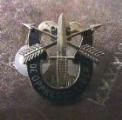Moderator's Note
In the thread 'Popular rebellion, state response and our failure to date: a debate ' several posts have appeared of late on the role of FDR (President Roosevelt) and the demise post-1956 of the mainly European empires: http://council.smallwarsjournal.com/...ad.php?t=13002. Those posts have been relocated to this historical thread, so a debate can occur.(Moderator ends).
Almost.
But it was always organisations (political parties) that exploited the idea and motivation of the concept of sovereignty and self determination among the people/masses in order to achieve power.
How many of the colonies that were granted independence after say 1950 led to a country where the people and not some dictatorship ruled?
That this was not anticipated or alternatively that this outcome was deemed inevitable and therefore acceptable says much about the driving force behind this decolonialisation process ... the USA under FDR.
While Stalin and Mao presided over the repression on a grand scale no one person delivered people into the death grip of dictators and repression like FDR. Truly a man who should be placed right up there in the rouges gallery next to Stalin, Mao, Hitler, Enver (Turkey), Pol Pot, Assad, Mengistu, Mugabe etc etc due to the number lives and human suffering his incompetent statesmanship cost.












Bookmarks